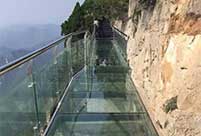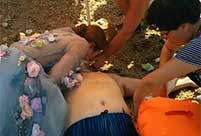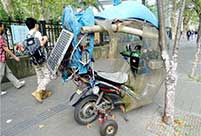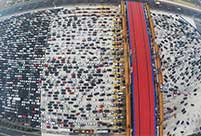

More than half of the Communist Party of China (CPC) Central Committee members elected during the 18th CPC National Congress in 2012 have been moved to different positions or were removed from their current jobs ahead of the CPC's fifth plenary session that kicks off on Monday.
The large-scale reshuffle is extremely rare in the history of the CPC, a result, said observers of the anti-graft campaign, which has been of unprecedented severity, and to guarantee a solid start to China's new five-year blueprint amid a slowing economy.
A WeChat account operated by Beijing's Party organ newspaper, the Beijing Daily, revealed that a total of 104 out of the 205 CPC Central Committee members have been promoted, demoted or expelled from their positions since 2012.
Among them, 81 were promoted to key positions, 16 were transferred to less important posts, and seven were removed from their jobs.
Some of the seven members may have their membership revoked during the fifth plenary session of the 18th CPC Central Committee that runs until Thursday, experts said.
Since the sweeping anti-graft campaign was launched in 2012, the announcement of any personnel reshuffles has drawn greater attention.
"The large-scale reshuffle helped select leaders of both action and bravery, as China needs such leaders to tackle the economic problems and ensure a strong start during the 13th Five-Year Plan (2016-20) period," Zhang Xixian, a professor with the Party School of the CPC Central Committee, told the Global Times.
Discussion of the 13th Five-Year Plan is on the agenda of the plenary session, presided over by Xi Jinping, general secretary of the CPC Central Committee.
The reshuffle will also pave the way for a smooth government leadership transition starting from 2016, said Ren Jianming, professor at the School of Public Policy and Management at Beijing's Tsinghua University.
Many of the 81 members newly promoted to key positions were transferred from more marginal positions and jobs in remote areas, the Beijing Daily reported.
One such member is Wang Yupu, former vice-chairman of the All China Federation of Trade Unions who became deputy head of the Chinese Academy of Engineering and then the chairman of Sinopec Group in May. Another is Nur Bekri, former governor of the Xinjiang Uyghur Autonomous Region who became head of the National Energy Administration in 2014.
Some CPC Central Committee members who were former heads of State-owned enterprises were also promoted, such as Xu Dazhe, former head of the China Aerospace Science and Industry Corporation, who was appointed chief of the China National Space Administration in 2014.
"This kind of change is needed for efficient future economic development as China is in a key phase of deepening reform and economic restructuring," said Cai Zhiqiang, another professor with the Party School.
The large-scale reshuffle also reflects that the country is focusing more on enforcement of discipline in Party construction since Xi took office in 2012, Zhang said.
"The country is laying the foundation to comprehensively strengthen Party discipline between 2012 and 2017," Zhang said.
The anti-graft campaign has toppled seven CPC Central Committee members since 2012 including Ling Jihua, former head of the United Front Work Department of the CPC Central Committee, Zhou Benshun, the former Party chief of North China's Hebei Province, and Yang Dongliang, former director of the State Administration of Work Safety.
After the likely revocation of their membership during the fifth plenary session, the resulting vacant positions will likely be filled by three alternate members. Most of the 16 members who stepped aside from key positions were aged 65 and above, and were transferred to legislature and political advisory bodies.
More than 100 officials at ministry level or above have been brought down in the anti-graft campaign since 2012.
 Love beyond limit of heights in the world
Love beyond limit of heights in the world
 When a Chinese woman marries an Indian man
When a Chinese woman marries an Indian man Photos of beautiful teacher hit the Internet
Photos of beautiful teacher hit the Internet Transparent Over-cliff Path Cracked Suddenly
Transparent Over-cliff Path Cracked Suddenly Bride-to-be tries to save drowned man
Bride-to-be tries to save drowned man Models change clothes on street in Hangzhou
Models change clothes on street in Hangzhou In pics: army beauties across world
In pics: army beauties across world Math teacher makes 'solar powered electric car'
Math teacher makes 'solar powered electric car' Heavy traffic turns expressway into huge parking lot
Heavy traffic turns expressway into huge parking lot Top 20 hottest women in the world in 2014
Top 20 hottest women in the world in 2014 Top 10 hardest languages to learn
Top 10 hardest languages to learn 10 Chinese female stars with most beautiful faces
10 Chinese female stars with most beautiful faces China’s Top 10 Unique Bridges, Highways and Roads
China’s Top 10 Unique Bridges, Highways and Roads Born free
Born free Buying British
Buying British Xi trip success narrows divide with West
Xi trip success narrows divide with West Online learning takes students out of the classroom
Online learning takes students out of the classroomDay|Week